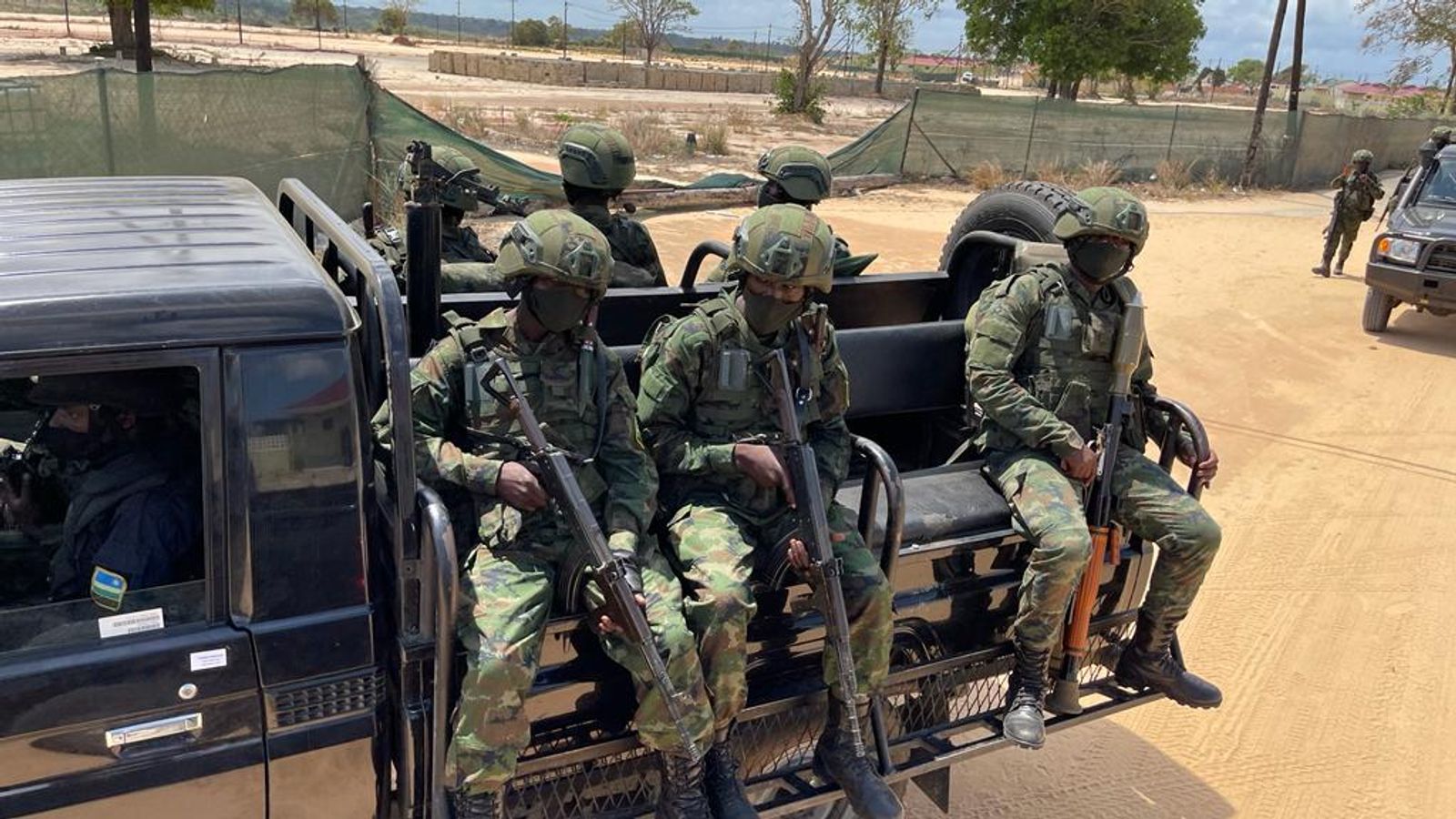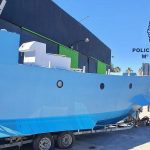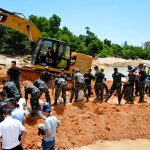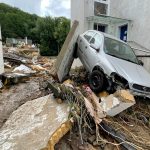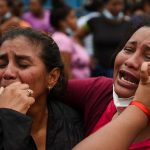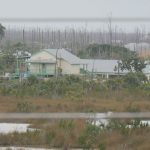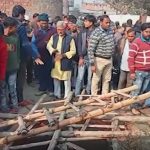In northern Mozambique, the country’s weary-looking soldiers can be seen on the roadside, walking about with ancient-looking AK-47 rifles slung on their shoulders.
They have access to a couple of armoured vehicles in the war-torn province of Cabo Delgado, but their vehicles date from an earlier era and have clearly suffered from decades of over-use.
Yet Rwanda’s Defence Force (RDF), now helping the Mozambicans deal with a nasty, three-year Islamist insurgency, is a very different proposition.
As members of a small journalist contingent embedded with the Rwandans, we raced past their Mozambican partners in fully-armed troops trucks and steel-plated personnel carriers as the men on the roadside looked wistfully on.
“You can see, they don’t have very much,” said one Rwandan soldier as we looked on from our speeding vehicle.
More than 1,000 Rwandan troops were sent to Mozambique at the beginning of July as the leaders of other southern African states began to sweat and fret about this conflict.
Cabo Delgado is isolated, impoverished and generally ignored by the country’s political elite and the insurgents have discovered that the region’s towns and villages are excellent places to recruit.
Mozambique: Stark pictures tell horrifying tale of three days under terrorist fire
Mozambique: Inside the hotel overrun by Islamist militants in deadly terror attack
Mozambique: Bodies in the street and hospital vandalised – Sky News first to see devastation left by extremists
The militants call themselves “Ansar al-Sunna” and form one of a growing number of groups across Africa that have pledged allegiance to the Islamic State.
Furthermore, their members have demonstrated a similar ability to generate and spread terror with near-constant reports of beheadings, executions and mass kidnappings.
Over the course of the past few days, our contacts reported attacks, abductions and beheadings in places like Quissanga, Quionga and Naharunga – small parts of a vast area that have already been largely depopulated at the hands of the militants.
Aid agencies estimate that around 800,000 people have been driven from their homes with tens of thousands living in poorly-equipped camps in the southern part of the province.
Still, as the RDF’s press team are keen to remind us, their well-trained and well-equipped forces have had an almost immediate impact on the ground.
It only took a couple of weeks to secure the Alfungi Penisula, where energy giant Total has been building a natural gas mega-project.
The Rwandans made the French firm’s facility their headquarters, then moved down the coast, reclaiming the key port of Mocimboa da Praia at the beginning of August.
We toured the city and found it – like most communities in Cabo Delgado – to be largely deserted.
Shops, homes and the local church had been destroyed or badly damaged and the port area was an utter mess, demonstrating the insurgents’ talent for destruction over civic administration.
The Rwandans took us over to the airport, which has also been trashed and laid out a huge stockpile of arms which they said had been seized from the militants in Mocimboa de Praia.
Their spokesman could not – or would not say where the guns and rocket launchers had come from – but it is highly likely they were plundered from the Mozambican military as their men retreated – or fled – during earlier phases of the conflict.
Still, there is a new army in town and their spokesman, Colonel Ronald Rwivanga, told me their mission was “open-ended” – they are prepared to stay, he said, “because it is the right thing to do”.
Yet we know the Rwandans cannot remain here forever and their temporary presence here will not address the various causes of this crisis which are rooted in the complicated business of poor governance and basic services.
